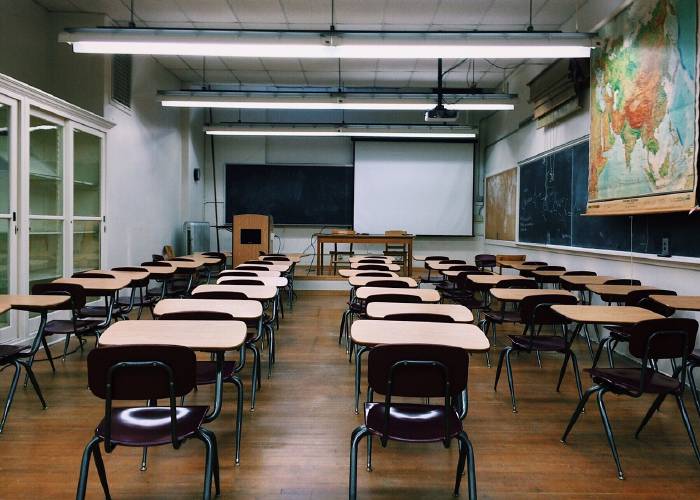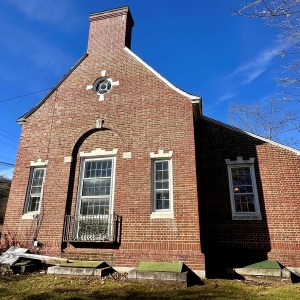Bill would give Dept. of Education power to subpoena teachers

| Published: 02-15-2024 6:19 PM |
Lawmakers are again considering whether to give the state’s top education official power to issue subpoenas during teacher misconduct investigations.
The bill, backed by Republican lawmakers and the Department of Education, is a more tailored version of a proposal that failed last year.
The Department of Education conducts investigations into educator misconduct, and occasionally revokes or suspends educator licenses, depending on its findings. The subpoena power proposed in HB 1353 would only apply to educators who are already under formal investigation and whose alleged misconduct meets certain criteria — such as alleged sexual or physical assault, or possession of a controlled drug or alcohol.
“It seems to me that if you are an agency that has the power to investigate and to conduct hearings, it shouldn’t be the case that regulated individuals can simply say, ‘Sorry, I’m not cooperating,’” said Rep. Bob Lynn, a Republican from Windham and former Chief Justice on the New Hampshire Supreme Court, who sponsored the bill.
Lynn went on to emphasize that subpoena power “was not a search warrant,” and that if a district did not cooperate, the Department of Education would have to go to court to enforce its request for information.
But critics of the bill warned it could be weaponized against teachers in a climate already rife with mistrust — and would give the education department extraordinary and unnecessary power.
“Allowing the commissioner to issue subpoenas because he or she has reason to believe, without sufficient evidence or reasonable cause, could lead to unwarranted investigations and damage the reputations of innocent educators,” Christine Downing, who leads curriculum and assessments for several school districts in the Upper Valley, told lawmakers Wednesday.
Megan Tuttle, the president of the NEA-NH, said the bill was still too far reaching. She pointed to a clause that would allow the commissioner to subpoena any educator being investigated “for any alleged failure to provide appropriate supervision pursuant to local school district policy by a licensed educator.”
Article continues after...
Yesterday's Most Read Articles
 ‘Bittersweet’: The Post on Main Street closes Friday
‘Bittersweet’: The Post on Main Street closes Friday
 Messy parking around Concord’s bus terminal won’t get less messy any time soon
Messy parking around Concord’s bus terminal won’t get less messy any time soon
 Jesse Sullivan pleads guilty to second-degree murder of half-brother, Zackary
Jesse Sullivan pleads guilty to second-degree murder of half-brother, Zackary
 In echo of 2014 struggle, Market Basket board sidelines ‘Artie T.’ from CEO spot
In echo of 2014 struggle, Market Basket board sidelines ‘Artie T.’ from CEO spot
 Historic former Boscawen library building on sale – again
Historic former Boscawen library building on sale – again
 New Concord apartments open in former First Congregational Church
New Concord apartments open in former First Congregational Church
She said the department has already used that kind of language to investigate a broad range of misconduct allegations, including curriculum, classroom materials, and speech in classrooms. (NHPR has previously sought information from the Department of Education about educator misconduct investigations, and the agency has declined to provide details about ongoing inquiries.)
Diana Fenton, an attorney for the Department of Education, noted that most school districts cooperate with the department during investigations.
“If there is an educator who is misbehaving and harming children in their district, they want to work with the department,” she said. “They want to ensure that that individual will not have access to other children and other districts.”
But not all districts are as forthcoming, Fenton said.
She pointed to the high profile case of Primo “Howie” Leung, a former Concord School District educator who is now serving a prison sentence on multiple charges, including raping a young woman while she was a student. Leung’s misconduct lasted for years, and a third party investigation solicited by the school district found that district administrators and staff mishandled the case. Several educators lost their license in connection with the case.
Fenton told lawmakers Wednesday that the education department did not have immediate access to that third party investigation, in part because it was considered property of the Concord School District. A subpoena, she said, would have expedited the agency’s ability to pursue its own investigation. But, she said, it would have only been a “tool of last resort.”
“It should not be used as a witch hunt or anything like that,” Fenton told lawmakers. “Any safeguards that this committee is willing to put into place, the department is happy to work with this committee and the stakeholders to reach that consensus.”







 Inside EFAs: How school vouchers have fueled an enrollment boom at Christian schools across New Hampshire
Inside EFAs: How school vouchers have fueled an enrollment boom at Christian schools across New Hampshire ‘He died for his country’: Pittsfield honors U.S. Marine who lost his life in Vietnam War
‘He died for his country’: Pittsfield honors U.S. Marine who lost his life in Vietnam War ‘The skills to excel’: CTRC graduates prepare to enter the workforce
‘The skills to excel’: CTRC graduates prepare to enter the workforce Manchester airport adds free ASL translation app for deaf travelers
Manchester airport adds free ASL translation app for deaf travelers
